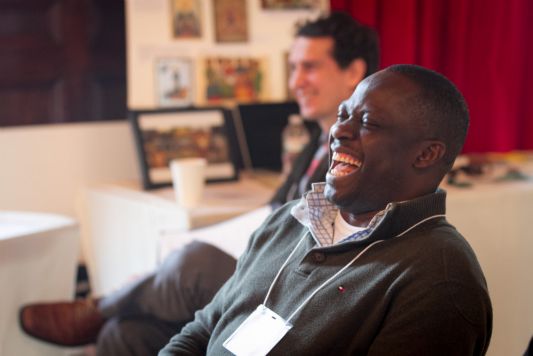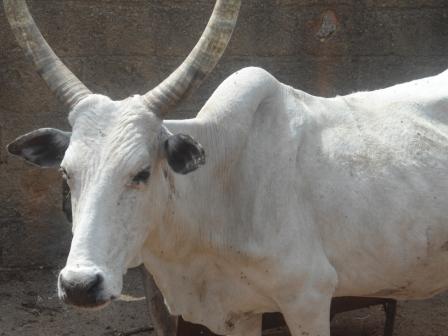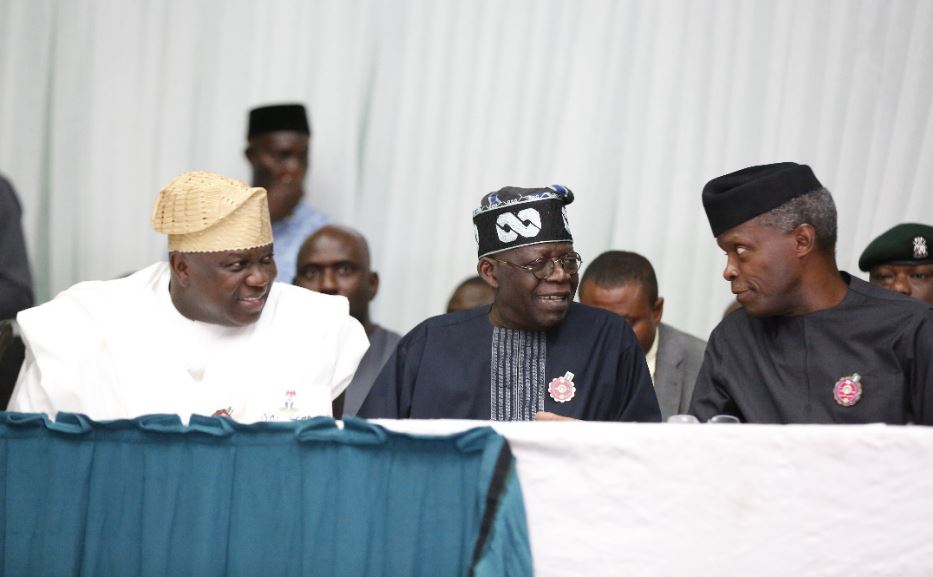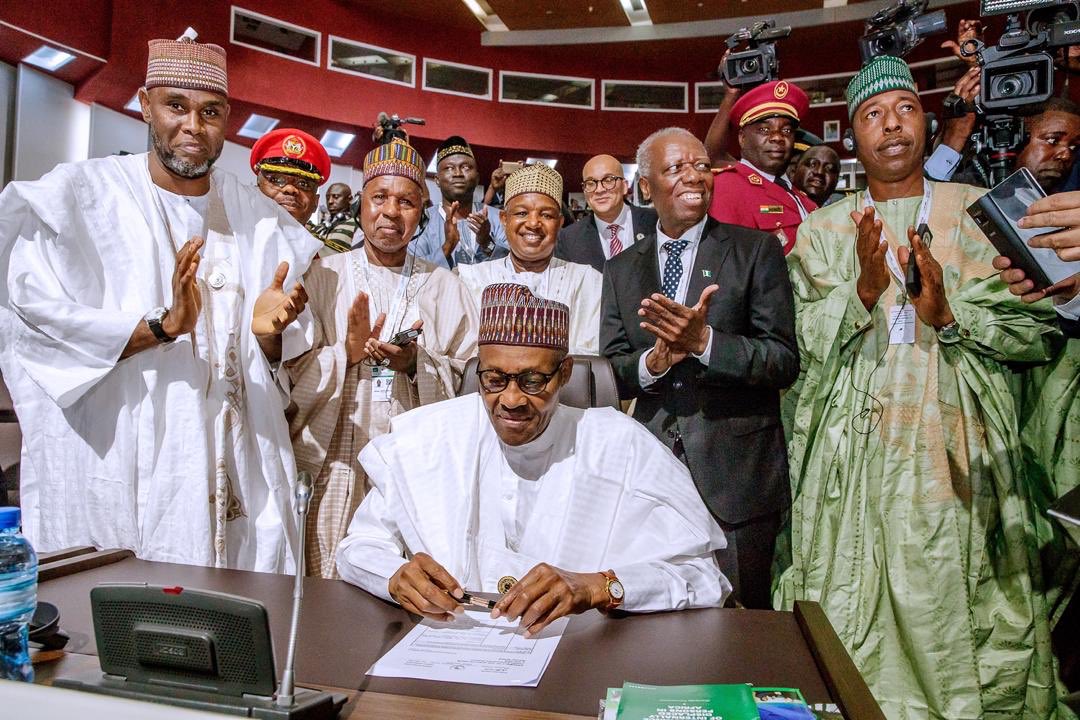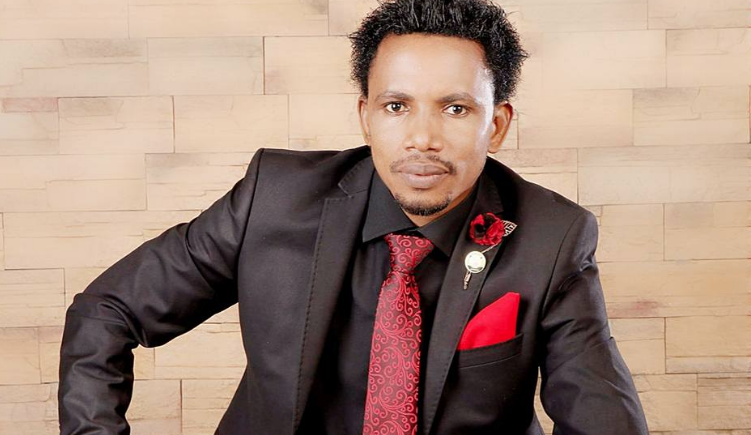Wednesday last week looked like a perfect day to escape from all the spirit-sagging, smelly stories oozing out of Nigeria. You could suffocate amid its hovering hail. Attacks against Muhammadu Buhari and his government’s proposal of a cattle colony for Fulani cattle tenderers in all the 36 states of the federation were clinical blows on such primitive, self-serving policy. Professor Wole Soyinka’s submission at the cusp of the debate, to me, was the most profound. How can a government value the lives of cows above its citizens’? How come the state under Buhari had never arraigned even a single one of these Fulani killers terrorizing Nigeria in years?
The latest is that a Coalition of Northern Groups (CNG) is threatening Nigeria that there will be no peace for us all over the suspension of the rheum called Fulani Ruga settlement. This is a policy conceived purely from the narrowest of minds. Bafflingly, the Nigerian state has no reply to the threats. That, to me, is the absurd equation Nigeria has been battling under this Buhari. Trending with equal vehemence were the arrows shot at Biodun Fatoyinbo, Pastor of COZA church who is embroiled in rape allegations from actress Busola Dakolo. If you have ever been a victim of fiery but illogical angers of a Roman mob like the Twitter and social media army in Nigeria, many of whom are paid recruits of principals who exploit their joblessness for pittances, you would be circumspect in apportioning blame on Fatoyinbo or Dakolo.
So when Ebenezer Obadare, my friend and Professor of Sociology at the University of Kansas, United States of America, who I call Ebeno, came to town the day before, it was for me an opportunity to escape the maddening narratives that have become Nigeria’s paterfamilias. It was also a perfect meander off having to comment weekly on the same idiotic, primitive incompetence and ethnic irredentism that have detained Nigeria in the last few years. It was a sure way of escaping the depthless arguments on parade over the twin issues on the social media. I have known Ebeno for about 35 years now, our paths having crossed when he was a student of Ilesa Grammar School and I, Cherubim and Seraphim High School, both in Ilesa, Osun State.
Obadare is one of Nigeria’s priceless exports to the West and I dare say, about the most profound academic of my generation. Formerly teacher at the Obafemi Awolowo University, Ile-Ife, he later graduated from the London School of Economics with a doctorate in Sociology. He is a civil society scholar, with particular interest in informal strategies of resistance under changing dynamics of rule. He has also done extensive researches in and published on religion and politics, civic engagement, civic service and citizenship in Africa. He has written many academic books, sits on the editorial boards of prestigious journals across the world and his recent book entitled Pentecostal Republic: Religion and the Struggle for State Power in Nigeria dissects the historical plague of religious divisions that has become almost like a periodic affliction in Nigeria. According to him in the book, the tensions that have intensified in Nigeria’s Fourth Republic, now manifest in the religious and nihilistic warfare of Boko Haram, are part of the narrative of how religion has become a potent weapon in explaining Nigerian politics and polity.
Advertisement
In the book, he also explores needless Christian-Muslim supremacy struggles and arrived at an intersection of how religion has become an integral tool of Nigeria’s democratic process.
Obadare is a bold and assertive scholar who has made one of the most controversial submissions yet on the dalliance between religion and politics. I had jokingly told him that I must not be seen in his company or else Daddy G.O. would order me suspended from The Redeemed Christian Church of God like Buhari did Ruga. Obadare has written many singeing, against-method criticisms of Pastor E.A. Adeboye that border on the atheism of Fredrich Nietzsche, Martin Heidegger and Soren Kiekergard. He also holds views on sexuality, same sex practice, religion and the like that are acutely atypical.
On arrival in Lagos from the US, Nigeria had given Obadare her raw baptism. A friend’s place he holed up suddenly succumbed to Nigeria’s electricity affliction which literally blew up his laptop. A visit to the Computer Village couldn’t properly cure the malady so we had come to Ibadan’s Shoprite seeking healing. Dr. Lasisi Olagunju, Tribune’s restless weekly opinion interventionist, joined the ensemble. You could be sure he coveted a copy of Obadare’s recent sacrificial offering to the intellectual groove on Pentecostalism. At the payment point, the joke that Pentecostalism had become crept in. Obadare told the lady who manned the point that I was a pastor. She asked, almost immediately, if I was of the COZA hue. We volunteered a rumbustious laugh. Obadare, later in the evening, watched as I walloped a braggy opponent in a game of squash. He thereafter invited me to a talk he was billed to deliver to graduate students of the University of Ibadan’s Department of Political Science the next day.
Advertisement
Speaking on a topic he said was a slap-dash title called The academic craft, Obadare dwelled on ideas of how to be an academic, together with its accompanying qualifications of a moral canvass and infrastructural imperatives. According to him, the talk was cobbled together to explain the academic in the academy, specifically outlining the tools that young scholars needed to stay afloat. To him, the necessity to fumigate the mind of the academy was an imperative. Obadare must have been aware that Nigerian scholarship is also afflicted, like every other thing bright and beautiful of yore, by the joke that Nigeria had become. Young and aspiring scholars are daily suffocated by Nigeria and becoming indistinguishable from politicians who wear on their lapels the prefix of Honourables. You know what Honourable means, I guess? This is the crop of Nigerians for whom honour is an anathema. Anyway, I learnt that Vice Chancellors also have Chiefs of Staff now and commandeer notorious sirens to blare atrociously before their convoys too, sending people scampering off the road.
At the event, Obadare indeed roused the graduate students up on the tools necessary for their envisaged troubadour into the academy. The intersection I however found most gripping because of its universality is what he termed the concept of epistemic humility or modesty which is required from the academic. According to him, epistemic humility is an admission of the inherent contingency of things, an admission of the inadequacies of intellectual equipment for apprehending the world. Obadare said that, an awareness and admission of that inadequacy ought to force on the academic an attitude of humility.
“That is why the most important word that should come out from the academic’s mouth ought to be ‘It appears as if’ or ‘it seems to me.’ He should eschew finality because he recognizes that the reality he is dealing with is contingent and the tools used to apprehend that reality, by definition, are inadequate. An admission of that ought to make the academic have epistemic modesty,” he said.
Then a student asked how the academic could survive in a competitive academic world where the Nigerian counterpart is still bogged down by very mundane existential imperatives like lack of electricity and the likes. “Unfortunately, when the academic finishes writing his paper, he doesn’t put a caveat at its footnote that, Dear editor, I hail from Nigeria where electricity is an issue, among other dilemmas of existence. Kindly assess my work bearing in mind these limitations. His has to compete equally with papers written from America, UK and the world as a huge canvass,” Obadare said.
Advertisement
This drew Obadare to the concept of desire. In its elucidation by him, he said desire is a combination of will and intelligence. Without desire, humans can seldom achieve anything. “When you encounter obstacles, desire keeps you on the track. It is almost analogous to the Christian journey. He encounters obstacles on the way but because salvation is his goal, he trudges on. Desire comes in the context of a paper submitted for publication but was rejected. It could be devastating. If you are desirous of the ultimate goal, desire helps to deal with it and overcome disenchantment. In reality, an absence of desire is death because the dead cannot desire. To be dead is to be undesirable. It is the fundamental thing about heroes. The fire of desire keeps them going. It is coterminous with relationships as well; once there is termination or final expenditure of desire, there is death. For an academic, desire helps to overcome obstacles,” he said. To another student who asked if scholarship in Africa had explained the feminist epistemology enough to the world, Obadare said he doubted if any scholar could claim to have apprehended, talk more of adequately voicing the views of a collective to the world. Rather, the academic should seek to explain their own understanding of issues to the world.
As if the ancient cliché – all turenchi and no lunch, which English people said made a dullard of Jack – was focusing its attention on us at that moment, we resolved to escape to a hotel which boasts of about the best pounded yam in a city that arrogantly thumps own chest as City of rust and gold, for an esophagus retooling. Iyan (pounded yam) for an Ijesa like Ebeno was like a sworn culinary oath. A professor from the Ibadan university, again one of the most clear-minded academics I have met, was literally suborned to be on our consul. We were meeting for the very first time. A uni-linear thread that runs through our meal order was pounded yam, but not without its diversity of soup to accompany it. Were our orders for soup a trope for the right path that Nigeria should tread? The professor, from Cross River state, propounded that edikaikong soup had gained universality among soups, becoming a staple cuisine across Nigeria.
And he asked me what I do for a living. I didn’t know, actually! All I could volunteer was that I am an itinerant critic who had gained notoriety for finding fault-lines in the polity, even when his own life is marooned in silly imperfections. I seldom proffer solutions to these faults, I said, because I, most times, don’t have any; I may be a disaster even as an ordinary Councilor in a local government but I peremptorily fool myself that I had pseudo competence in speaking truth to power. “You are then an intellectual non-academic,” he volunteered, citing examples of jurists who daily battle the convoluted legal space of jurisprudence and politicians like Obafemi Awolowo, both of whom though never taught in the university, were intellectuals of no mean stature.
Still cleverly burying morsels of pounded yam inside their adulterous partners of three different bowls of soup and sending each twin partner inside our entrails, we veered into my piece of last week on Soyinka and the youth in the plane. They both disagreed with me on the idolization of icons in society. Obadare specifically talked about the coterminous linkage of this idolization with the epistemic humility he volunteered earlier. Idols like Soyinka should be venerated but the idea of their contingency should not be lost in the maze. The epistemic humility, I submitted, should also undergird our lives as human beings in whatever sphere of life we may find ourselves. We are finite beings and whatever our contributions to life are, are mere vapour that will someday vanish into the ether, with no traces, leaving in its trail a mere memory. Can anyone imagine our friend and compatriot, Pius Adesanmi, with that seminal mind of his a few months ago, now transmogrified into mere memory?
Advertisement
We dwelled on many other issues over pounded yam, in the manner of that Ellen May Ezekiel’s Over Cognac piece in the Quality magazine of the early 1990s. The hotel that provided our entrails such abiding momentary comfort, 45 years old in existence, also engaged us. It is a Nigerian exemplar in a country where corporate establishments are easily drowned in the flood of Nigerian limitations. As we went our different ways that evening, we resolved to revisit this ancient Jack theory whenever Ebeno is able to escape the sanity of America for our inherent Nigerian insanity.
Elisha Abbo and barrenness of profiling
Advertisement
Anyone who has humanity affixed to their being should find revolting the video in circulation that had Senator Elisha Abbo, Peoples Democratic Party (PDP) Adamawa, assaulting a woman in Abuja. The outrage that attended the video is also well placed. What I however find very unbecoming is our attitude as Nigerians in profiling misdemeanor along fault lines of political party, religion, tribe and class. If you journey with the outrage on the social media, you would see this national weakness on generous display.
Abike Dabiri, Chairman Nigerians in Diaspora Commission, walked through this familiar terrain. “To think that this PDP guy was said to have ‘defeated’ one of our most respected female parliamentarians, Senator Binta Massi Garba…” she had said via her @abikedabiri twitter handle.
Advertisement
This thin comb with which we run through issues in Nigeria is the bane of robust discourses. Many people, afraid of being that tar-brushed, refrain from volunteering opinions, lest they be profiled. The truth is, such narrow location of views that we disagree with in our convenient pigeon-holes is sterile as basis for arguments. When I hear people say that somebody behaved in a particular way due to where they hail from, their sexuality, the party they belong to or their religion, I see such people as potential suicide bombers. Why don’t we admit that Abbo is a manifestation of a disease of the mind that afflicts so many homes in Nigeria today? And that those indices have no connection whatsoever to that malady? There must be thousands of APC members who beat even their wives daily and thousands of PDP members who are persuaded that being unruly to anyone, whether male or female, is a behavior that justifies Joseph Conrad’s submission that Africans’ hearts are chiseled from stones of darkness. And also vice versa.
I must confess that at a time in my life, I subscribed to such narrow reasoning. When outrage attended how then Enugu Attorney General, Sullivan Chime, backstabbed the hands that fed him, even before he was sworn in as governor, with my hands curved like a turtle’s, I told my Igbo friends that such treachery had no place in Yorubaland and that Yoruba had an almost ancient reply to traitors. I cited examples of those who treacherously dealt with Obafemi Awolowo and how, till today, their families are still pariahs in the land. It didn’t take long before my wonky reasoning received loud debunks. Yoruba governors too began to betray their godfathers at the drop of a hat.
Advertisement
I have subsequently come to understand that a Yoruba can be treacherous, Igbo can and Hausa can too, in equal proportion; the only consistent variable being their individual constitution. Right from when I sojourned in Yelwa-Yauri, Kebbi State some years ago, to my four-year stint in Enugu, I came to realize that humanity is binary, regardless of tribe, religion, political party or any other classification. There are execrable Yoruba and good ones in equal measure; horrible Hausa, nice ones; deadly Igbo and very humane ones. It is the lesson we should pick from the Elisha Abbo fellow.
Views expressed by contributors are strictly personal and not of TheCable.
Add a comment

